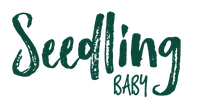$13.95 FLAT RATE SHIPPING | FREE OVER $160 AU WIDE
$13.95 FLAT RATE SHIPPING | FREE OVER $160 AU WIDE

5 Reusable Switches to Try for Plastic Free July
July 01, 2022 3 min read
Plastic Free July® began in Australia in 2011 and since then, has become a global movement that helps millions of people be part of the solution to plastic pollution.
The great thing about the Plastic Free July® movement is that anyone can get involved. You can start with just switching out one small thing, or overhaul a few things. The key is to choose what will be sustainable for you to maintain. It's better to do one or two things well than dozens of things poorly or to give up after a week because it's overwhelming.
If you're already using cloth nappies and want to switch out some more things around the home, here are some of our favourite places to start.
REUSABLE MENSTRUAL PADS
Australians use around 500 million disposable pads each year. Apart from the resources to produce this vast quantity, there's also an enormous landfill load at the other end of their life cycle. Many end up being flushed which in turn can lead to enormous problems in the sewerage lines and at plants.
Around 300 million tampons are sold in Australia each year. Apart from the product itself, which can take decades to break down, each one is individually wrapped in plastic which creates even greater environmental burden.
The cost for disposable menstrual products over 30 years has been calculated at well over $15,000. This is no small financial cost; in fact, it’s a darn good family holiday or a fair whack off your mortgage. Check out my blog post HERE for more reasons to make the switch to reusable menstrual products.
KITCHEN CLOTHS
13 years ago, we made the switch to reusable kitchen cloths which I wash every day. I find this much more hygienic than the kind that sit on your bench for a couple of weeks before being thrown away, and far cheaper in the long run. It's probably one of the easiest switches to make, as they don't need any extra care and can just be thrown in the machine with whatever else you're washing. We use our bamboo cloth wipes, but you can use face washers or make some using old flannel pjs. If you're struggling to think of a #plasticfreejuly change that's super simple, try this one.
SERVIETTES
There’s something really delightful about using a cloth serviette. It elevates the table and can make the people who sit around it feel extra special. We have several sets which I’ve made from some of my favourite fabrics and they’re simply thrown in with the regular washing each day. If you're a sewer, you can grab some beautiful fabric and make them up yourself, or simply invest in a packet of hankies or dedicated serviettes.
UN-PAPER TOWEL
We've been using un-paper towel in the kitchen for over a decade now and would never go back. I love sewing, so I made my first batch using a tutorial which I can no longer find online, but this is another good one. You can also just use rags, old nappy inserts or tea towels, but if you love to sew, making your own can definitely add a little luxury to your kitchen. Apart from the environmental and cost benefits of using un-paper towel, it's also truly liberating not to rely on the supermarket for a daily staple.
FREEZER BAGS
We tend to purchase meat in bulk as it ends up being a lot cheaper for our big family, so instead of purchasing dedicated freezer bags to split it all up into, I keep my bread bags and use these instead. It’s not a multiple-use reusable switch, but it does give a throw-away item just one more useful purpose, and sometimes that's more important than trying to find something that's 100% perfect. Instead of investing in a brand new option that would be 100% reusable, it's good to try and use what we already have or are already procuring regularly.

Are Reusable Nappies More Environmentally Friendly than Disposables?
April 24, 2024 1 min read

3 Ways to Reduce the Outlay of Starting Cloth Nappies
April 23, 2024 2 min read

Cloth Nappy Council Rebates 2024
April 05, 2024 4 min read
